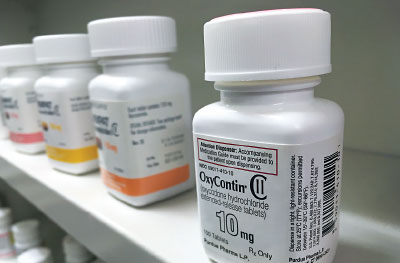Purdue Pharma LP—the maker of the opioid OxyContin (oxycodone)—in September announced that it had reached a tentative agreement to settle a landmark lawsuit over the company’s role in contributing to the nation’s opioid crisis.
Per the settlement framework, the pharmaceutical giant filed for reorganization under Chapter 11 bankruptcy. Following the dissolution of the company, Purdue would be restructured into what’s called a “public benefit trust”—a for-profit business model that allows profits to be used to improve the public good. This new company would continue selling OxyContin and other drugs but would use the profits to settle the plaintiffs’ claims. The new company would also continue to research and develop medications for opioid addiction and overdose, which would be made available to states and communities at no or low cost.
The Sackler family would relinquish ownership of Purdue (as well as their other pharmaceutical assets) as part of the settlement and contribute $3 billion to the claim. Neither the company nor the Sackler family would admit wrongdoing as part of the settlement. In total, Purdue Pharma estimated the settlement would be worth $10 billion to $12 billion.
Given that this national lawsuit against Purdue includes over 2,000 plaintiffs from state and local governments across the country, the reaction to the settlement terms has been split. As Psychiatric News went to press, 25 state attorneys general (plus the District of Columbia) were opposed to the deal, while 23 have agreed in principle to the terms. Kentucky and Oklahoma previously reached their own settlements with company.
The major complaint among attorneys general opposing the settlement is that the Sackler family is getting off easy—both in monetary forfeiture and personal responsibility for their role in the opioid crisis. They cited evidence that the Sacklers were well aware of the risks of Oxycontin yet continued to push for aggressive marketing to line their pockets. (A recent Forbes estimate suggests the family is worth around $13 billion, largely from sales of their opioid painkiller.)
“We have to ask ourselves, if we want real accountability for this wrongdoing, where should the money come from? Should it come from future sales of addictive and deadly drugs, as Purdue has proposed, or should it come from the Sacklers themselves?” wrote Massachusetts Attorney General Maura Healey in a Washington Post opinion piece.
Others have questioned Purdue’s estimated $10 billion to $12 billion valuation of the deal.
Those that support the deal—such as attorneys general from hard-hit states like Ohio and Tennessee—see it as a necessary path to get much-needed resources to communities affected by opioid use.
“The only alternative involves years of additional litigation in the forlorn hope of getting more personal money for corporate conduct,” noted Ohio Attorney General David Yost in a statement.
The settlement negotiations are ongoing in bankruptcy court. The Federal Bankruptcy Judge Robert Drain in White Plains, New York, will make the final decision on the approval, rejection, or potential modification of this deal.
As part of the bankruptcy process, Purdue Pharma has been removed as a defendant from a federal trial in Ohio (scheduled to begin October 21), in which Summit and Cuyahoga counties are suing multiple pharmaceutical companies and distributors for creating a “public nuisance” that led to thousands of opioid addictions and deaths in these counties.
Some news reports indicate that several other drug manufacturers named as defendants in the trial, including Allergan and Johnson & Johnson, have begun exploring a pathway in which they would contribute money to the new public trust company as part of a global settlement. ■

